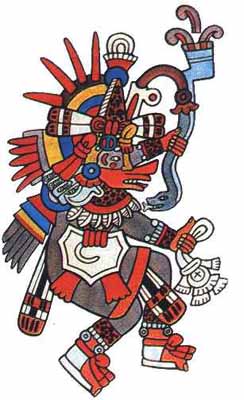Charles Pollack
Professor Knapp
Eng1B
10/20/2011
Marjane Satrapi’s life in Iran, at a time of chaos, indelibly marked her way of thinking and her beliefs. Her faith was shattered because of the real life situations she witnessed. The loss of loved ones, the cost of war and the Islamic fanaticism in the story contain both irony and paradoxical situations. I will list a few paradoxes, ironies and ambiguity statements in my New Criticism analysis.
For instance, she claims at the age of six years old she was “…born with religion” (Satrapi 6). Yet at no point, she writes about what religion she follows. The beginning of the book begins with the Islamic Revolution and the wearing of the Veil. She then states, “…really did not like to wear the veil, especially...we didn’t understand why” (3). Obviously, she was not following Islam. Satrapi goes on to explain that she is very religious, but her family is modern and avant-garde. I believe she uses another paradox here because Satrapi’s parents had given her books with Communist themes and Marxist writings to enlighten her. In essence, what is her religion in this story? Who or what does she worship? At one point, she believes in the existence of God but then her values and personal system of beliefs disappear so that she rejects religion altogether.
Another interesting paradox is her claim to be a prophet. She claims, “At the age of six… I was the last prophet” (6). The text also shows four people kneeling down and
Pollack2
worshipping her with a crown of light around her head. This particular use of the word, prophet, indicates Satrapi claims to interpret or transmit the commands of a deity.
I believe she thought that this kind of prophet, as someone with power, the power to heal and the power to change situations. Satrapi states several times about the negative situations in her family’s life. She wanted to change the segregation of classes. The maid is an example of social class distinction; she ate in another room, separated. Another example is her grandmothers aching knees. Satrapi wanted to heal the pain. However, she quotes a prophet, Zarathustra, “…behave well, speak well, [and] act well” (7). In this use of the word prophet, the definition takes on a different meaning, “… as some who advocates a cause or idea” (Encarta Dictionary). There is ambiguity in these meanings. Is she using the religious aspect of prophet or the advocacy of a just cause? Either way it is a paradox.
A situation that is clear ambiguity is her defeatist tendency. She tells her teacher and classmates, about what she will be when she grows up, “I’ll be a prophet” (8). She then acquiesces, to her Father’s questioning, “I will be a doctor” (9). Then she goes on to say she is, “…guilty towards God” and states aloud she “… I will be a prophet” (9). She flip-flops in-between what she sees and what she imagines. She is beginning to see the world as it really is therefore she is losing her faith. She states this in saying, “My faith was not unshakable” (10). Clearly, a defeatist attitude is stated.
The final paradox and irony comes when she compares God to Marx and when she tells God to get out of her life. She has books about dialectic materialism, a comic book, by Karl Marx.
Pollack3
Where does the comparison come from? Her faith, or her belief in a religion, is attributed to what source? She has a book about Marx, but no book or pictures of God other than what she believes are a resemblance to Marx. She has dialogs with God and telling God to change topics. Satrapi wants something more concrete then a belief or an imagination. Her world needs stability in a chaotic time.
Finally, her faith is shattered beyond repair with the death of her Uncle Anoosh. In the tragedy of sorrow and heartache, she blames God. The only comforting thing she has known and the only thing that was her faith, she lets go of God. She states, “And so I was lost, without any bearings…” (11). It is at this point, where she becomes secular. The rest of the book is without faith or a belief system. That is a paradox.
Works Cited
Satrapi, Marjane, Persepolis. New York: Pantheon Books, 2004. Print.
Soukhanov, Anne H. Microsoft Encarta Dictionary. New York, NY: St. Martin's Paperbacks, 2002. Print.

Chuck... you made laugh! I read your post, every word. Now, could you say something nice about Marjane or the book... just thinking.
ReplyDeleteI read your peer review and I like how you supported all your points. What you could,"The rest of the book is without faith or a belief system. That is a paradox." yes you have a conclusion but you could make that stronger and add a bit to it. All in all i liked your paper. Good work.
ReplyDelete